One Health Graduate Students
Graduate research assistantship awards provide an annual stipend, allowance for tuition and fees, and health insurance for graduate students focusing on One Health research. Awards are available to students throughout the University of Arizona.
One Health Graduate Research Fellowship
2025 Fellowship Description: The University of Arizona's One Health Research Initiative is seeking applications for Graduate Research Fellowships. One Health is a collaborative, multisectoral, and transdisciplinary approach with the goal of achieving optimal health outcomes recognizing the interconnections among people, animals, and their shared environment (including ecosystems, and social and built environments). These positions will begin in the fall semester of 2025. Appointments will be made for up to one academic year plus the summer with the possibility of applying for a second year of funding; please see below for reappointment requirements. Awards will provide an annual stipend, allowance for tuition and fees for fall and spring semesters, and health insurance. Projects must have a One Health focus at the intersection of environmental health, human health, and animal health. The competition is open to projects that combine at least two of these three areas and have a plan for future growth into all three areas. Proposals must explicitly state the overall One Health problem under study, and how the current objectives fit into the overall problem. The One Health Advisory Committee is available to help students needing assistance with fitting their research objectives into the One Health framework. To request assistance, please contact Griselda Ruiz-Braun at grm1@arizona.edu at least four weeks prior to the submission deadline.
Eligibility: Applicants can be US citizens, residents, or holders of an F1 visa. Applicant must be a full-time student in a University of Arizona graduate program.
Required materials:
Nomination from the principal investigator with information on: 1) Why this student is an ideal candidate for a fellowship, 2) What funding is available to the student and their research project, and 3) How the project fits with the One Health mission (no more than two pages).
Candidate’s CV including GPA in graduate coursework.
Research plan written by the candidate outlining the One Health research that the student proposes to pursue while on the fellowship (no more than one page).
A statement outlining the student’s experience and training to perform the research (no more than one page).
For students applying for a renewal of funding, a statement on achievements during the first year of funding (no more than one page).
Deadline: Monday, March 3, 2025 by 5:00 pm AZ
Review Process: The One Health Advisory Committee will review the applications. The candidate will be selected based on achievement, potential impact of the proposed research, fit of the research project with the One Health mission, and the potential for future success. In accordance with the University of Arizona’s commitment to inclusive excellence, principal investigators are encouraged to nominate candidates from diverse backgrounds, especially individuals historically underrepresented in STEM fields.
For questions, contact Professor Frank von Hippel: frankvonhippel@arizona.edu
Email application in ONE PDF file to: grm1@arizona.edu
One Health 2023 GRA Awardees
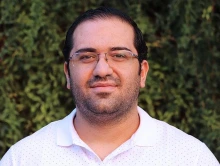
Ma’in Zaid Alghzawi was born and raised in Jordan, which faces similar water limitation challenges to those in Arizona. Knowing that alternative water resources such as treated wastewater have been increasingly used on a larger scale in the area for agricultural purposes, more environmental challenges are being faced. In addition, other concerns have been raised recently about the increased soil contaminants released from different places (e.g., As-Samra Wastewater Treatment Plant) all over the country. The unexpected flow of refugees in Jordan has a huge contribution in these concerns. Moreover, obvious symptoms of climate change in our local and global environments have also compounded the problem. Therefore, conducting PhD studies in Environmental Science-Chemistry field and investigating the fate of various types of contaminants in the environment, as well as their impacts on human health is a necessity in tackling the problem. This field would satisfy Alghzawi’s ambition of being engaged in facing the environmental challenges in Jordan and other countries. As a Ph.D. candidate in the Department of Environmental Science, he is developing expertise at the interface between soil chemistry and human health. Alghzawi joined Dr. Jon Chorover’s research group to investigate how climate and primary tailings materials interact to control the products and propagation of geochemical reactions in mine waste sites (as part of the University of Arizona Superfund Research Program) and how these processes affect the bioaccessibility of toxic metals and metalloids in simulated gastrointestinal fluid. Alghzawi has previously measured total metal(loid) concentrations down tailings weathering profiles from sites forced by a range of climate conditions using microwave-assisted acid digestion prior to ICP-MS analysis. He mentored graduate and undergraduate students interested in applying this procedure to their own analyses. With support from the One Health program, Alghzawi is initiating in vitro bioassay experiments to assess the fraction of total toxic metal(loid) concentration in tailings that is bioaccessible in stomach and intestinal fluids, as a means to improve risk assessment. Alghzawi was previously a Superfund Research Center trainee and presented a poster at the NIH/NIEHS Superfund Research Program Annual Meeting that was titled “Investigating the Transformations of Arsenic and Toxic Metals Speciation in Mine Tailings Under Different Climatic Conditions”. In 2022, Alghzawi was selected to present a poster at the SRP-35TH Anniversary Annual Meeting entitled "Climate-induced variation in toxic metal(loid)s concentration and speciation in weathered mine tailings”.
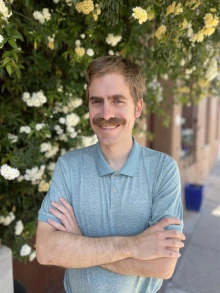
Joshua Douglas Arnbrister graduated in 2016 from Oregon State University with a bachelor’s degree in zoology. After a year working for Clackamas County Vector Control District, he attended the University of Arizona to pursue a master’s in entomology. His master’s research focused on engaging community health workers in Southern Arizona in mosquito control and surveillance. He has also been extensively involved in community outreach events and tick surveillance projects in the area of Pima County. He is currently pursuing a PhD in Entomology at the University of Arizona, focusing on flavivral ecology in Arizona and Sonora, specifically focused on dengue surveillance and factors influencing transmission.

Taylor Ann Foerster is a final year PhD candidate (ABD) in the department of communication at the University of Arizona. She holds an MS in Agricultural Education and a BS in Natural Resources (Wildlife emphasis) that inform her current research. Her research interests include the application of communication theory to inform the development of effective communication strategy, human dimensions of natural resources, and community engagement.
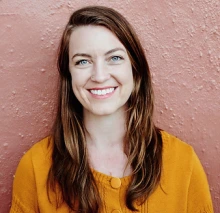
Jenna Honan is a Scientific Analyst and PhD candidate in Environmental Health Sciences at the University of Arizona's Mel and Enid Zuckerman College of Public Health. She is a first-generation student from rural Arizona, lending a unique perspective to her studies. Her interests include contaminant fate and transport in the environment, ecological restoration, community-engaged research, policy development, ecotoxicology, and statistical modeling. Her current research areas focus on environmental and occupational exposures, including VOCs in beauty salons and autobody shops, pesticides and other toxicants on and near agricultural sites, and childhood exposures to contaminants found in soil and dust around the home. She always works with the goal of helping prevent long-term adverse health outcomes that likely follow such exposures.
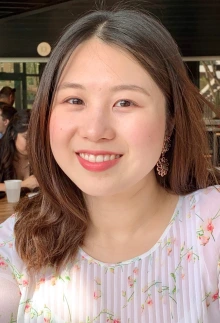
Yoonhee Jung is a 4th year PhD student in the Environmental Health Science program at the University of Arizona. Her main research interests in her doctoral degree is Quantitative Microbial Risk Assessment (QMRA), Infectious Viruses, Indoor Environment and Intervention, Risk Perception, and Water Treatment. She studied water treatment and disinfection using advanced oxidation processes (AOP) for her bachelor's and master's degrees in the Environmental Engineering department at Yonsei University (Mirae), South Korea. She recently published her laundry QMRA research "Evaluating infection risks and importance of hand hygiene during the household laundry process using a quantitative microbial risk assessment approach" in the American journal of infection control (2023). She received the GRA scholarship for One Health research, which is "Risk-risk tradeoffs and risk-perception study associated with cleaning and disinfection (C&D) using “green” products" for the 2023-24 academic year. As a Risk assessor and Exposure scientist, she will continue working on the project to prevent pathogens and harmful chemical exposure to the public and make appropriate interventions for the indoor environment.
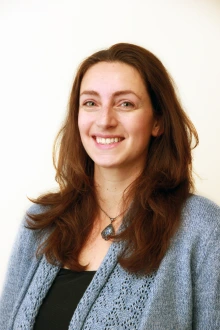
Sarah Leighton is a PhD Student in Social Psychology, minoring in Human-Animal Interaction. She holds a BA in Neurobiology and Behavior from Cornell University and an MS in Human-Animal Interaction from Purdue University. Prior to pursuing her PhD, Sarah spent 10 years working at a national non-profit service dog provider, Canine Companions – first as a service dog trainer, and most recently as the National Director of Training and Client Services. She has participated on multiple expert panels and advisory committees pertaining to service dog placements including with Assistance Dogs International, American Humane, and the American Veterinary Medical Association. Sarah’s PhD research is conducted through the College of Veterinary Medicine’s OHAIRE Lab (led by Dr. Maggie O’Haire) and focuses on understanding how service dog placements influence biopsychosocial outcomes for individuals with disabilities through a One Health lens.
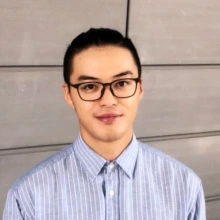
Tuo Liu (LT) is a Ph.D. student at the University of Arizona. He majors in Environmental Health Sciences, and minor in Biostatistics. His research interests include Metabolomics, Proteomics, Feature Selection, High-Dimensional Data Analysis and Application of Data Science tools in Public Health research He serves as a Research Associate in the Burgess Lab and the Furlong Lab and focus on the application of metabolomics & proteomics on firefighters’ occupational health improvement.

Neeraja (Neera) Setlur is a 3rd year Ph.D. student in the department of Environmental Sciences. She has a bachelor’s degree in Hydrogeology from the University of Texas at Austin, and she worked as a petroleum geoscientist in ExxonMobil before beginning her Ph.D. at the University of Arizona. Her research focuses on the remediation of PFAS from contaminated water. Per and polyfluoroalkyl substances are not biodegradable and extremely hard to remove from the environment. These substances can accumulate in our bodies over time and cause several health issues including different types of cancer. Unfortunately, they are ubiquitous in our daily lives and continue to pollute our environment and bodies. Her current project tests the efficacy of an organic based polymer that can be injected into the pores of an aquifer and attract PFAS from the groundwater to stabilize it in place. The polymer in the aquifer will act as a filter so the groundwater we pump for potable water has significantly lower concentrations of PFAS.
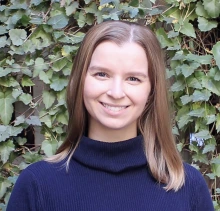
Carrie S. Standage-Beier is a Nutritional Sciences Ph.D. student at the University of Arizona School of Nutritional Sciences and Wellness. She is under the mentorship of Dr. Dawn K. Coletta, an Associate Professor at the University of Arizona, with a shared appointment in the Division of Endocrinology, Department of Medicine, and Department of Physiology. Carrie’s doctoral research is funded by a One Health fellowship, which examines the intricate interplay between social determinants of health and genetic variants contributing to cardiometabolic disease among Latino participants from El Banco por Salud (Wellness Bank). This initiative stems from a collaboration between the University of Arizona’s Center for Disparities in Diabetes, Obesity, and Metabolism and Federally Qualified Health Centers, El Rio Health, and Mariposa Health in Southern Arizona. Carrie’s academic journey includes a Master of Public Health degree in Health Behavior Health Promotion from the University of Arizona, as well as a bachelor’s degree in Nutrition Dietetics from Arizona State University. Following her bachelor’s degree, Carrie completed a dietetic internship at the University of Nevada, Reno.
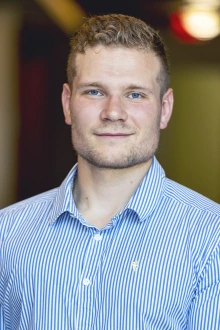
Ben Stansfield is a 3rd year Genetics PhD student working in Dr. Aikseng Ooi’s laboratory. He moved from the UK in 2020 to pursue a PhD and has since been using computational biology, bioinformatic, molecular biology and chemical biology tools to analyze large genomic data sets and investigate signaling pathways in cancer. His current research focuses on developing a novel massively parallel sequencing technique that captures mutational events as they occur, to then apply it to investigate processes that drive the development of pathogenic mutations in the context of environmental exposure, human diseases, and animal health. I am also investigating the role base excision repair (BER) plays in the development of genomic mutations in the hereditary cancer syndrome, hereditary leiomyomatosis and renal cell cancer (HLRCC).
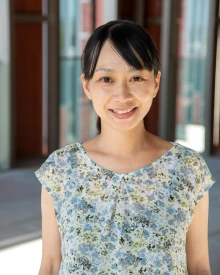
Noriko Tamari is a PhD candidate in Epidemiology at the College of Public Health, University of Arizona. She worked as a Japan Overseas Cooperation Volunteer in Honduras, working on a project on Chagas disease control in local communities. She also worked as a clinical research coordinator in several hospitals and clinics in Tokyo, Japan. In her master's project in western Kenya, she spent seven months collecting field data on malaria infection and the number of people using bed nets. Her dissertation topic focuses on the interaction between Water, Sanitation, and Hygiene (WASH) and mosquito dynamics in western Kenya.
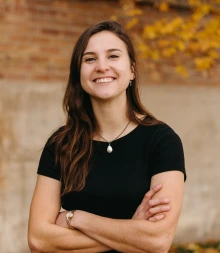
Chloe Thomas is a PhD Student in Biosystems Engineering and graduate researcher in Dr. Yoon’s Biosensor Lab. Her research focuses on detecting contaminants in water using paper microfluidic chips and computer vision. She is currently designing a system utilizing this technology to detect and identify PFAS in water. She will be working with Tucson water over the course of this project to collect and test field samples from local wells. Over the summer she worked as a research engineer at Biosphere II. In this position she has worked on designing and installing remote sensing systems to aid research objectives. Prior to coming to University of Arizona, Chloe helped with sustainability projects in Argentina in underserved communities with the 100,000 Strong in the America’s grant. Chloe holds a B.S. degree in Mechanical Engineering from the University of Wisconsin – Platteville.
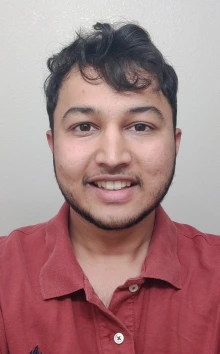
Sri Harsha Vishwanath is a third-year Ph.D. student in microbiology. His research is focused on the computational prediction of host-pathogen interactions to help find new drug targets to tackle Clostridioides difficile infection (CDI). Through a fellowship with Humane Society International, he previously tried to substitute animal models in drug testing utilizing an in silico and biological approach. He has also worked on mapping the spread of the Bluetongue Virus, a seasonal veterinary epidemic in India, through molecular epidemiological studies. His goal is to unify human health and veterinary sciences since a lot can be learned through their collaboration.

